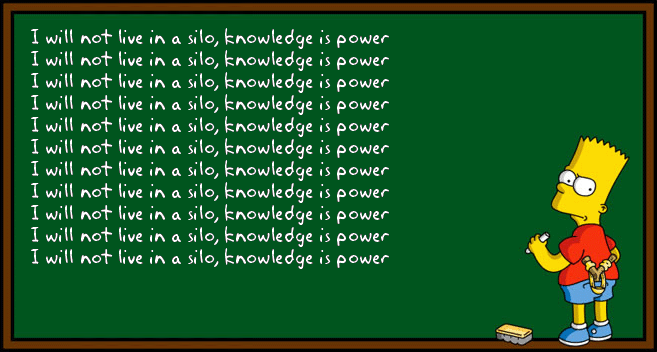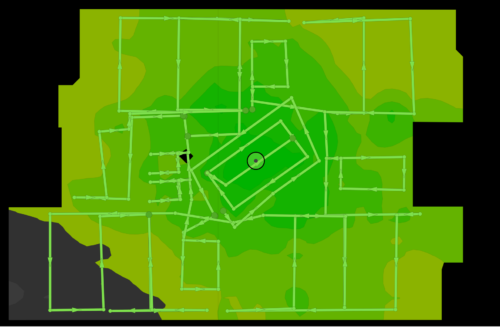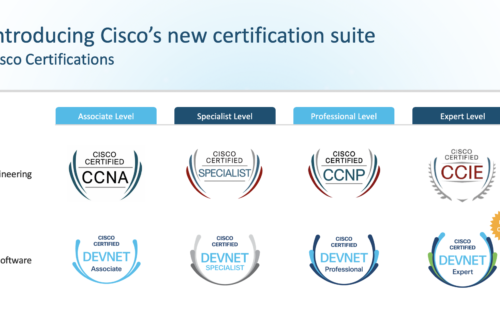Information Technology is an interesting market, I’ve seen a lot of different setups from where people would be Jack of All Trades Master of None to the full silo where you only know one thing, and one thing alone. When I entered the professional services market you focused on a track if you will that was either Security, Collaboration (Voice, Video, IM), Route/Switch, and Wireless. Your development track was highly focused on a single track, you needed to be a master of just that one technology. In wireless this is extremely difficult because you need to understand basics of voice for when you deploy a wireless VoIP for example, you need to know some basics on firewall rules for secure guest deployment, basic CCNP level knowledge to support your access points connected to the wired gear, etc. This was the past, going forward your connected medium shouldn’t be your primary focus, that’s just one aspect of it, you now need to know greater levels of routing/switching and security using policy engines such as ISE and ClearPass.
Going forward being a wireless engineer really needs to change. No longer should a wireless engineer be a person that knows how to install an AP, controllers, etc. The person needs to be a true RF engineer, understanding that makes you the wireless engineer. (Yes one could argue that this has been always the case and I agree, but that isn’t really what we see in the real world all the time!) With a converged access/distributed/vendor-x method there is a larger focus on understanding how a wired network properly works to troubleshoot packet flows. I know I’ve changed some of my development plans to focus more on route/switch training to better understand technologies such as SDN. I still have a desire to obtain my CWNE but now am looking at things like the CCIE R/S or CCIE Security.
Are you changing your development plans? Chime in on the comments if you are!




Nailed it. And on top of all that, with the devops movement, there’s beginning to be a push for sys admins and engineers alike to understand software development at a fundamental level to enhance network automation and intelligence.
I agree to an extent. But as always, it is really difficult to be an expert in more than one area. I guess it depends on what kind of deployments an engineer is doing. For something big in scale and complexity, its never a one man job anyways. What you need is an architect to do the HLA end then specialized teams for each specific level. And a project manager making sure communication between all groups is healthy.
So I would say:
If you are working for a VAR or in EDU, most enterprises, health sector,etc. you have to be the jack of all trades.
If you work for a carrier, a big (fortune 100) company, a vendor (depending on the job) or highly demanding environment with mission critical networks, specialization is preferred.
And the end of the day, my option is that if you think of yourself as WLAN engineer you should chase CWNE, CCIE-W and the likes prior to equivalent level certs on the security, routing or voice. And vice versa.
Gregor
Gregor very good points. It is difficult to be an expert in more than 1 area that is for sure. I don’t expect someone to really be an expert at both wireless and wired, but I think the days of a wireless engineer simply pawning things off to someone else is over primarily when it comes to troubleshooting. Do I expect a wireless engineer to be the lead architect for a campus core build out? No, I simply think we need to have a much stronger and deeper understanding of the various technologies to adequately troubleshoot a problem.
As a VAR , I usually have to be a jack of all trades. Over the years, I have managed to forge great relationships with partners that can fill in the gaps. The current issue is the general lack of WLAN expertise. I tend to agree with Gregor, it is difficult to be an expert in everything, but you really can’t be effective unless you have a better than average knowledge of voice, routing, security. The trick is to find the right balance(which I haven’t come close to yet!)
Blake,
I’ve got to agree that more background skills are needed in Route/Switch, plus Active Directory, RADIUS, etc. But a Wireless LAN Professional must have first and foremost RF and 802.11 skills. If Wi-Fi doesn’t work at Layer 1/Layer 2 – everything else doesn’t matter.
It is very tough to be an ‘expert’ in multiple disciplines at the same time. So I say background in broad technologies, but focus on a single one to be ‘expert’ in.
Keith
I hate not knowing it all. I hate it to the core of my being. I also realize that it is impossible to know it all. I’ve made a decision in the last year or so to narrow my focus down to a few key areas. As much as it pains me to cut off certain technologies and products, it is the only way I will ever get the amount of technical depth that I want.
If what you seek is basic familiarity with other technologies and products outside of wireless, then that is certainly attainable. If you want to be a high performer in many different areas, I don’t think that is possible. Of course, my definition of high performer might be different from others.
I’m aware of all the players on my son and daughter’s soccer teams. I know which ones are good and which ones are not. However, I know my kids far greater than their respective teammates because I am not as focused on them as I am on my kids. I only have 2. If I had 20 kids, how hard would that be to be as focused on each of them as I am on my own 2?